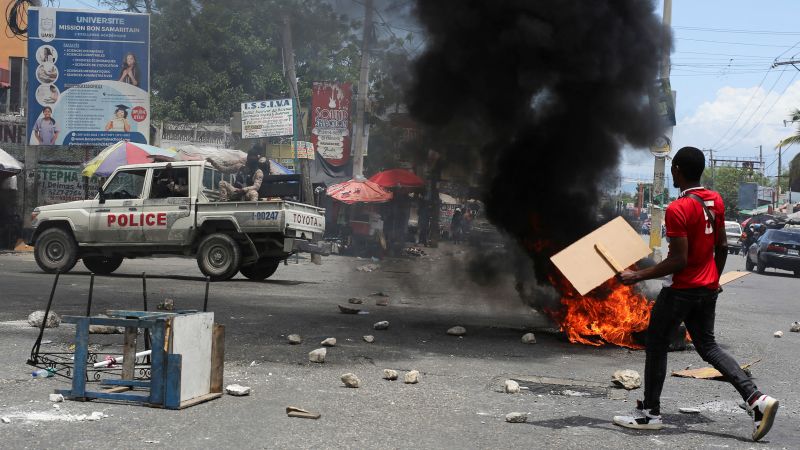
Implications of Trump Administration's Termination of TPS for Haitian Immigrants
Politics | 7/28/2025
The Trump administration’s recent moves to terminate Temporary Protected Status (TPS) for Haitian immigrants have sparked concerns within the community, as many fear the prospect of being returned to a country facing significant challenges. The decision has left hundreds of thousands of Haitian immigrants uncertain about their future in the United States.
Under the Trump administration’s policy changes, the potential return of Haitian immigrants to their homeland has raised fears among many individuals who have built lives in the U.S. over the years. A spokesperson highlighted the precarious situation, emphasizing that for some, the risk of going back to Haiti is viewed as a life-threatening scenario.
The termination of TPS for Haitian immigrants underscores the complex and sensitive nature of immigration policies. Experts in the field have emphasized the importance of considering the safety and well-being of individuals affected by such decisions. According to legal experts, the administration’s actions fall within the framework of existing immigration laws, despite the humanitarian concerns raised.
In response to the administration’s decision, advocates for Haitian immigrants have voiced their opposition, citing the fragile state of affairs in Haiti. They have called for a more compassionate approach, considering the challenges and risks faced by individuals if they were to return to a country in crisis. Nevertheless, the administration remains firm in its stance on TPS terminations, citing adherence to legal guidelines.
As the situation unfolds, the uncertainty surrounding the fate of Haitian immigrants in the U.S. highlights the broader issues surrounding immigration policies and their implications for affected communities. The debate over the termination of TPS for Haitian immigrants continues to draw attention to the complexities of immigration law and the potential impact on individuals seeking refuge and stability in the U.S.


